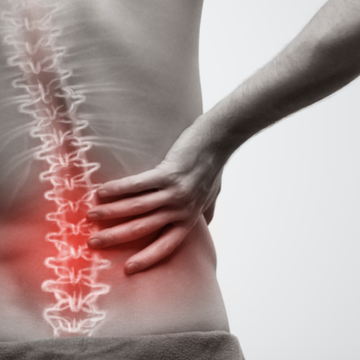Research Project

Aidan Cashin
Current Appointments
NHMRC Emerging Leadership FellowKey Research Areas
Dr Aidan Cashin (PhD, BExPhys) is a NHMRC Emerging Leadership Fellow, Deputy Director of the Centre for Pain IMPACT at Neuroscience Research Australia (NeuRA) and a Conjoint Senior Lecturer in the School of Health Sciences at the University of New South Wales. Prior to commencing research, Aidan pursued a successful clinical career as an Accredited Exercise Physiologist, practicing primarily in the field of chronic musculoskeletal pain.
Aidan’s current research is focused on developing, testing, and optimising healthcare interventions to improve chronic pain management. This includes investigating the mechanisms and applicability of healthcare interventions to support translation into practice and policy. Most of Aidan’s work is applied to the management of chronic musculoskeletal pain including low back pain. Aidan also conducts methodological work that aims to improve research transparency and openness. Aidan has received over $11.6 million in competitive national and international research funding and received several awards for his research including the International Association for the Study of Pain (IASP) Ronald Dubner Research Award for the best doctoral thesis in the field of pain (2022), the Australian Pain Society (APS) Rising Star Award (2023) and the Research Australia Discovery Award (Highly Commended) (2023). Follow Aidan’s work on Google Scholar and ORCID.
Publications
2025, 18 Mar
Analgesic effects of non-surgical and non-interventional treatments for low back pain: a systematic review and meta-analysis of placebo-controlled randomised trials
View full journal-article on https://doi.org/10.1136/bmjebm-2024-112974
2025, 24 Jan
Mechanism evaluation of a digitally enabled rehabilitation intervention for people in aged care and neurological rehabilitation: mediation analysis of the AMOUNT trial
View full journal-article on https://doi.org/10.1080/09638288.2025.2454298
2025 Jan
It is time to take a broader equity lens to highlight health inequalities in people with pain
View full journal-article on https://doi.org/10.1016/j.bja.2024.09.026
2024 Dec
Reporting health and medical research
View full journal-article on https://doi.org/10.1136/bmjebm-2023-112563
2024 Nov
The methodological quality of clinical trials of physical therapy for low back pain varies between countries with different income levels. A meta-epidemiological study
View full journal-article on https://doi.org/10.1016/j.bjpt.2024.101139
2024 Oct
Barriers and enablers to exercise adherence in people with nonspecific chronic low back pain: a systematic review of qualitative evidence
View full journal-article on https://doi.org/10.1097/j.pain.0000000000003234
2024 Sep
Emotion regulation skills‐focused interventions for chronic pain: A systematic review and meta‐analysis
View full journal-article on https://doi.org/10.1002/ejp.2268
2024 Aug
Indirect effects in mediation analyses should still include measures of uncertainty and, when appropriate, test for statistical significance
View full journal-article on https://doi.org/10.1016/j.jclinepi.2024.111395
2024 Feb
Variation observed in consensus judgments between pairs of reviewers when assessing the risk of bias due to missing evidence in a sample of published meta-analyses of nutrition research
View full journal-article on https://doi.org/10.1016/j.jclinepi.2023.111244
2024, 01 Jan
Are Exercise Interventions in Clinical Trials for Chronic Low Back Pain Dosed Appropriately to Meet the World Health Organization’s Physical Activity Guidelines?
View full journal-article on https://doi.org/10.1093/ptj/pzad114






